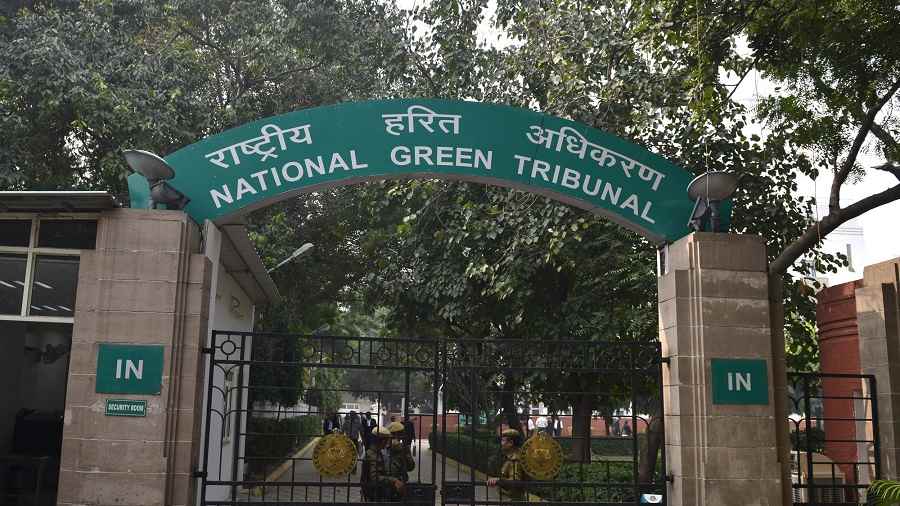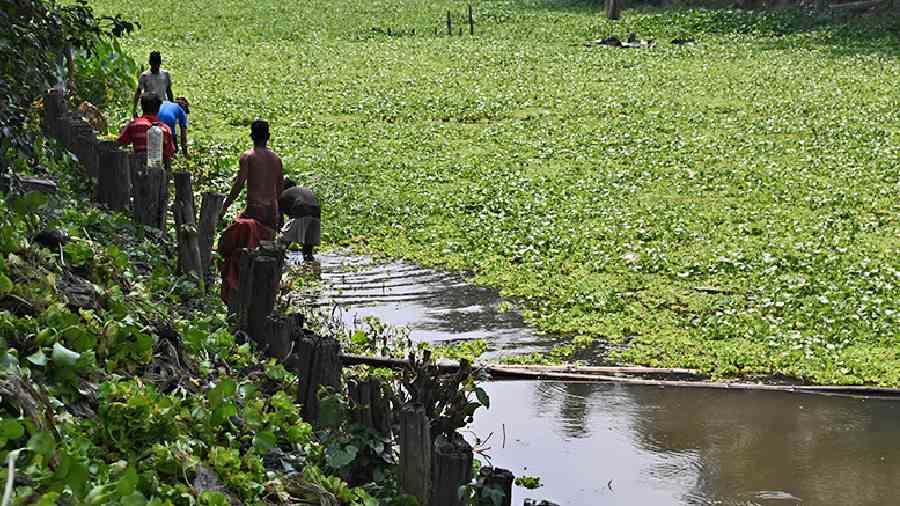The eastern bench of the National Green Tribunal has directed the West Bengal chief secretary to take action to arrest pollution in the river Saraswati and remove encroachments impeding the flow.
The four-member bench, led by chairperson Justice Adarsh Kumar, has also ruled that “an action taken report in the matter may be filed within four months (to) NGT”.
The order, which followed a public interest petition filed by environment activist Subhas Datta, was issued on Monday, but could only be accessed on Tuesday.
“In view of orders already passed, we consider it necessary to direct the chief secretary, West Bengal, in coordination with other concerned authorities in the state as well as central authorities such as NMCG (National Mission for Clean Ganga) and railways to ensure remedial action for treatment of solid and liquid waste resulting in pollution of the Saraswati, apart from taking necessary steps for removing the encroachments,” reads the order.
The order also states that “… legality of construction of bridges over the river obstructing its flow needs to be looked into” and has asked the chief secretary to call a meeting with all departments concerned within a month.
Datta's petition, filed in February 2022, alleged “failure of the authorities to prevent pollution and encroachment of Saraswati river”, which flows through Hooghly and Howrah districts.
Subsequently, the tribunal formed a fact-finding committee which acknowledged “pollution and encroachments" in the river.
The committee identified “untreated sewage from Bansberia Municipality as the major concern” and also highlighted the dumping of plastic and solid waste into the water. The panel also mentioned that a railway bridge at Tribeni in Hooghly is obstructing the flow of the river.
The report also said “major siltation and deposition of water hyacinth has happened because of existence of numerous bamboo makeshift bridges across the river at close distance from one another”.

